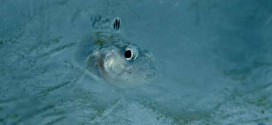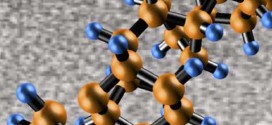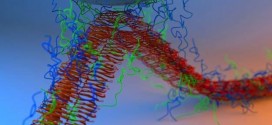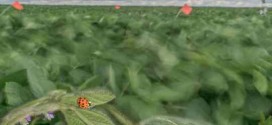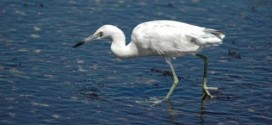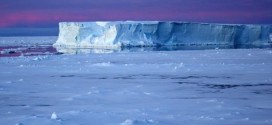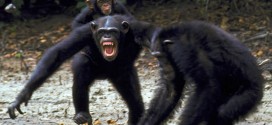Your genes may decide whether you find alcohol tasty or bitter, according to a new study. The study found that people with one version of a bitterness taste receptor gene found an alcoholic drink to be less bitter-tasting than those with a different version of the gene.
Read More »Press Releases
Antarctic Fish Possess Antifreeze and Anti-Melt Proteins, New Study
One of the few species of fish capable of surviving a life in the frigid waters of Antarctica, the Notothenioids, have been found to have ice in their veins all year round. It has long been known that the fish produces proteins which act as a kind of natural anti-freeze, preventing ice crystals from growing beyond a certain size.
Read More »Researchers Discover Method to Produce Ultra-Thin Diamond Nanothreads
For the first time, researchers have discovered how to produce ultra-thin nano-threads that exhibit extraordinary properties, including strength and stiffness greater than the strongest nano-tubes and polymers available today.
Read More »Researchers Teleported A Photon 25 Kilometres
Physicists at the University of Geneva have succeeded in teleporting the quantum state of a photon to a crystal over more than 25 kilometres of optical fibre. The experiment, carried out in the laboratory of Professor Nicolas Gisin, smashes the previous long distance record of 6 kilometres achieved ten years ago by the same team.
Read More »Shellfish-inspired glue sticks even in water : research
Inspired by natural adhesives secreted by shellfish, MIT engineers have created a new stronger waterproof glue that can be used to repair ships and even heal wounds and surgical incisions. Scientists at the Massachusetts Institute of Technology (MIT) engineered bacteria to produce a hybrid material that incorporates naturally sticky mussel proteins as well as a bacterial protein found in biofilms …
Read More »Climate Change: Decline in wind may affect predator-prey balance
A new study by a University of Wisconsin Madison zoologist has found that declining wind may alter predator-prey relationships. The study has demonstrated the way “global stilling” or declining wind may alter predator-prey relationships.
Read More »Simple Test Can Help Detect Alzheimer’s, Study
A simple assessment of thought-based movements can help identify Alzheimer’s risk in people long before dementia symptoms set in, new research has found. The findings were presented by researchers at York University in Toronto based on study of people with mild cognitive impairment (MCI) and those with a family history of Alzheimer’s disease.
Read More »Marine ecosystems affected by variability in coastal upwelling, New Study
New research suggests short-term decreases in marine animal growth and reproduction could be linked to an increasing variability in the strength of coastal upwelling currents, which work to supply nutrients to a number of crucial ecosystems
Read More »Researchers see risk of mutant airborne Ebola as remote
The first British volunteer of a new Ebola vaccine made by GlaxoSmithKline has been injected in a fast-tracked safety trial.
Read More »Antarctic sea ice set for record high, Report
For the third year in a row, the growth of Antarctica’s sea ice will likely hit a new record this month. But, enigmatically, at the opposite end of the world, Arctic sea ice remains depleted and is expected to show the sixth lowest September minimum ice extent on record, according to Climate Central.
Read More »Humans and chimps share killer instinct say researchers
Researchers have overturned the widely-held view of chimpanzees and revealed that they are, like humans, natural-born killers.
Read More » Canada Journal – News of the World Articles and videos to bring you the biggest Canadian news stories from across the country every day
Canada Journal – News of the World Articles and videos to bring you the biggest Canadian news stories from across the country every day

